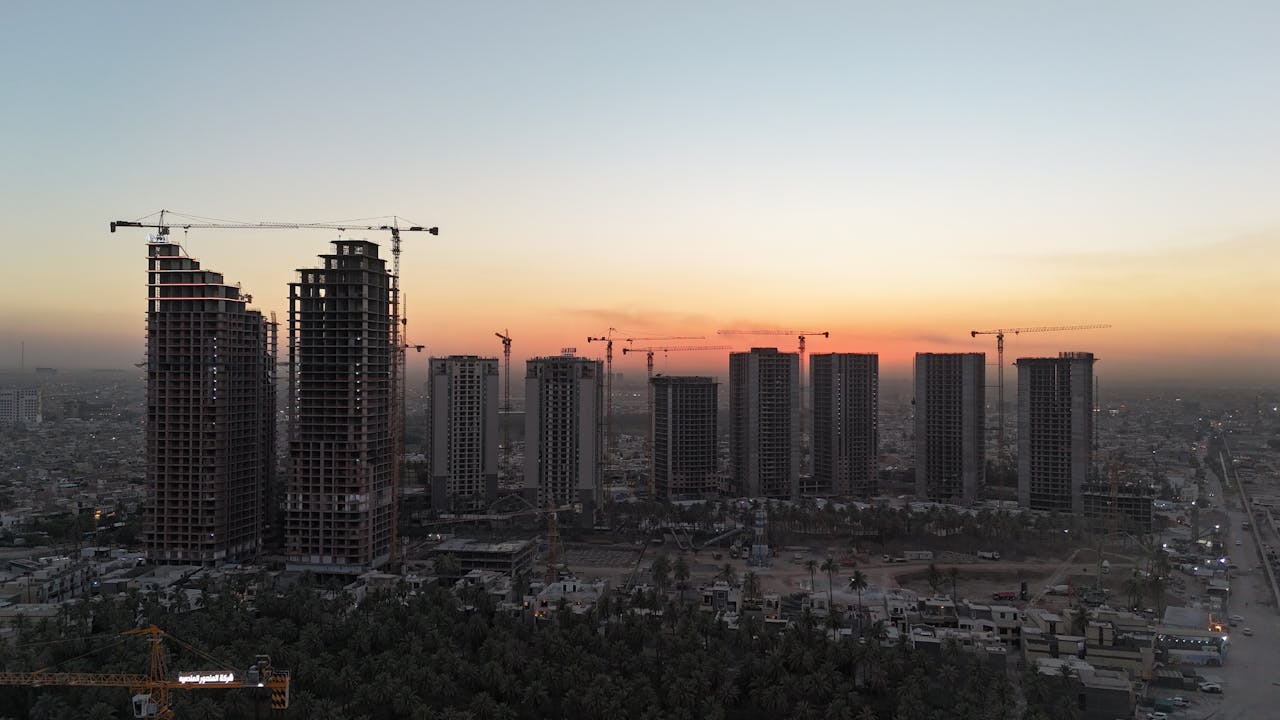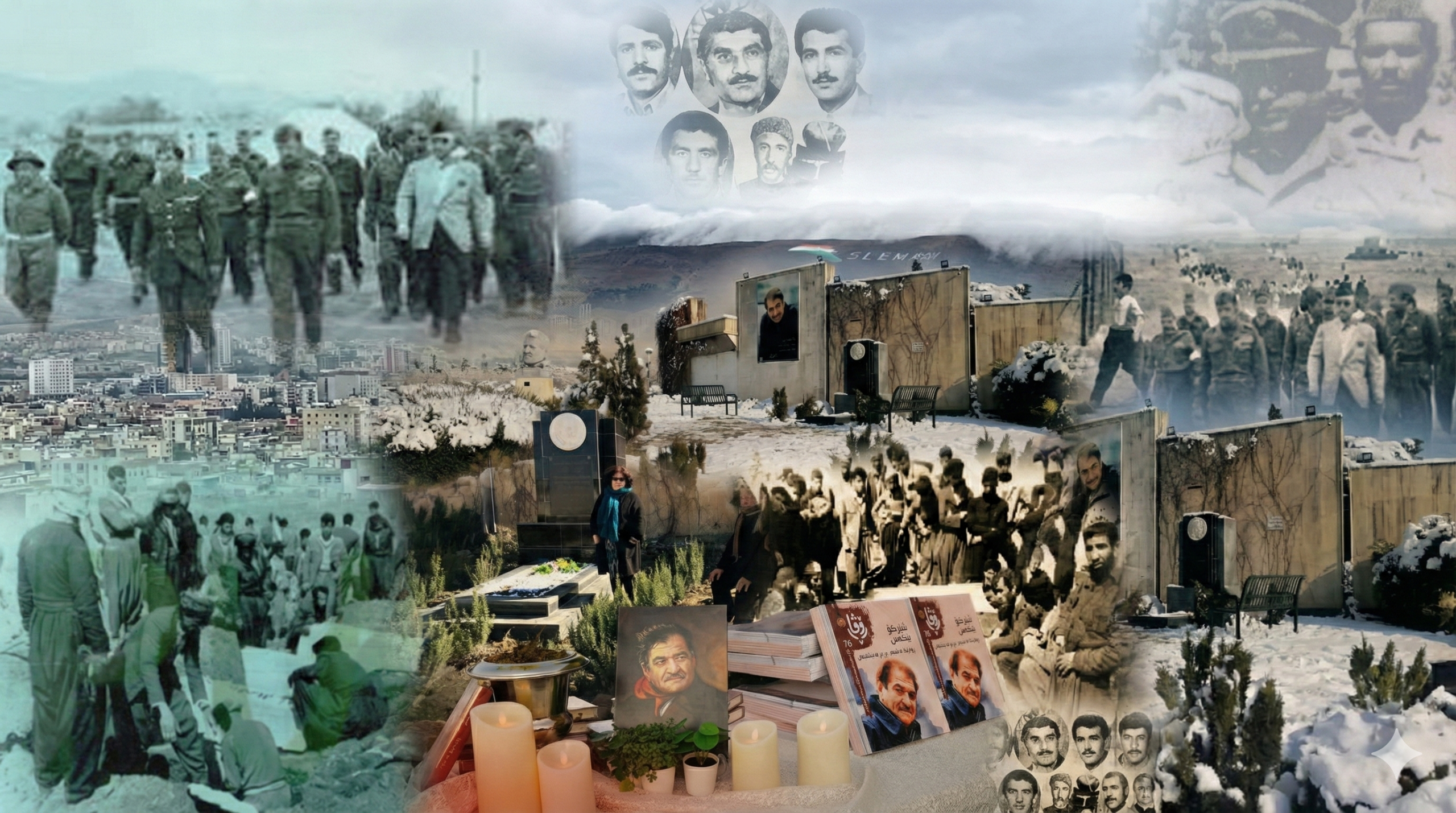Baghdad: An Autumn Travel Note
Photo Credit: Muhammad Nabeel / Pexels
Although Baghdad has had quite an uplift recently after several gloomy years, it has many impediments yet to overcome.
When I was a child growing up only a few hundred kilometers north of Baghdad, the city, for me, stood as “the center of the world and at the crossroads of the universe,” as it was described by the ninth-century Arab geographer Abu Ishaq Yaqubi in his work, The Book of Countries. This mythical view has changed over time; the city decayed, not only culturally and economically, but also politically, becoming the unfortunate and infamous center of many political cruelties. Recently, I had an opportunity to visit the city again.
Arriving on an October evening, I found the air to be pleasant. When I approached the passport control area, the security personnel there asked me, “Why are you not checking in at the E-gate?” I had just renewed my Iraqi passport, and it gave me the possibility to use the E-gates. However, one felt that the question was more about taking pride in the airport’s significant infrastructural developments than about my convenience. The newly paved road from the airport to the hotel seemed as deliberately placed as it seemed impressive. “The road wasn’t like this until recently; they repaved it for the 2025 Arab League summit in May,” someone whispered to me, confirming my suspicion.
For long, the city has been a tense political battleground, marked by conflicts and power struggles among various groups.
It was not an ordinary time in Iraq, as the country was going through a parliamentary election. Baghdad during the time of democracy! For long, the city has been a tense political battleground, marked by conflicts and power struggles among various groups. Currently, while the city experiences a rare sense of calmness, the tensions are nevertheless tangible. The question is whether they will be contained within the realm of politics or if the city will witness a return to violence. The answer is not yet clear, but the apprehension did not seem to hinder the people on the streets from enjoying the moment.
The streets and walls were covered with election posters and slogans. The pictures of the candidates were big, and in contrast, the slogans were small, a gesture that reflects the importance of personalities in the election and indeed in Iraqi politics. Although there were some big slogan billboards too, most noticeably Amar Al-Hakim’s, the head of the Hikma party, slogan “Don’t Lose It” لا تضيعوها.This slogan refers to the complex history of the Sunni and Shia struggle to rule Iraq and particularly Baghdad. “Don’t lose it” is a request, asking Shia voters in Baghdad to take part in the election in order not to lose what they have gained, i.e., ruling the country, in post-Saddam Iraq. This particular request comes as a result of two developments: the withdrawal of the al-Sadr group from the upcoming election, and the potentially high number of voters who will abstain from voting.
The fear of the Shia ruling elites stems from the belief that if the Sadr followers turn out in low numbers, there is a possibility that the Sunni-controlled political parties might gain the majority of Baghdad’s 71 seats.
These two factors affect the Shia constituency in the city. As it is known, Sadr has a big constituency in Baghdad, known as Sadr City. The latter is home to more than 2.5 million people. The fear of the Shia ruling elites stems from the belief that if the Sadr followers turn out in low numbers, there is a possibility that the Sunni-controlled political parties might gain the majority of Baghdad’s 71 seats.
When, in one of our meetings, someone asked a former Iraqi parliamentary speaker if such a victory of the latter in Baghdad would be catastrophic, the speaker replied that this would translate to the Sunnis gaining only seven more seats and that it would not be catastrophic. No matter the result, it indicates the degree of fragility and contestation between the two prominent forces within Iraqi politics. The Baghdad election outcome could have major symbolic ramifications and impact on Iraqi identity, as the city goes through a significant restructuring process.
One can broadly divide the electoral campaign themes into two sets: one is development and infrastructure, and the other is identity politics. No doubt Baghdad needs infrastructure, as evidenced by the many construction sites dotting the city. This approach is led by the incumbent prime minister, Muhammad Shia al Sudani. These construction and development slogans seem to have replaced the prominent focus on democracy, as the latter has almost disappeared from the electoral discourse. It is a telling sign of the waning American influence in Iraqi politics, and perhaps an indicator of the rise in popularity of the Chinese model. Sudani also advocates the Iraq First approach, mimicking the Trump campaign, but with an Iraqi spin on it.
When it comes to the discourse on identity, it is expressed in different ways. The Taqadum party slogan, “We are an Umma,” is the most striking one. The concept ‘Ummah’ (أمّة) in Arabic has multiple meanings. At its core, it refers to unity, magnitude, homogeneity, and common purpose, often both spiritual and cultural. For Halbusi, the leader of the Taqadum Party, the slogan is a way to overcome the minority status of the Sunni people in Iraq.
The reality of civil war still haunts the city. The assassination of Safaa al-Mashhadani, after midnight on 15 October, was a cruel reminder of this.
Setting aside the elections, the city develops in an intriguing and somewhat sad manner. There are a number of realities negotiating with each other on the streets. The reality of civil war still haunts the city. The assassination of Safaa al-Mashhadani, after midnight on 15 October, was a cruel reminder of this. Safaa was a candidate for the upcoming parliamentary elections from one of the Sunni lists. He was from the Tarmiyah district, a suburb in the north of the capital, part of the Baghdad belt. The latter is an area of contestation between Popular Mobilization forces and the local Sunni groups.
Another reality is the rapid urbanization and exhausted infrastructure, perhaps aptly exemplified by the lack of zebra crossings in the city despite the millions on the streets. As the city develops, the (over)consumption lifestyle is another undeniable aspect of this reality, manifesting through the mushrooming, sterilized shopping malls.
In the meantime, old habits are not changing. Nicotine and caffeine were once associated with intellectuals and teahouse dwellers. Today, neither meal nor, it seems, thinking unfolds without tea and cigarettes. Tea is the wine of the poor, as they say, while nicotine is a way to deal with the mounting frustration associated with living in the city.
One evening, after a meal in a Kurdish restaurant, we visited the booksellers of Al Mutanabi, named after the legendary tenth-century poet Abu Tayyeb al-Mutanabi. On the famous street, publications were laid out for sale on the sidewalks; magazines and volumes were arrayed on sheets, racks, and cartons. As a sign of the times, there were not only books on the pavements but also Chinese-made toys. China is the main consumer of Iraqi oil and, consequently, the main supplier of the Iraqi market.
Finally, let’s take a peek at the palaces of the main politicians in the city. In addition to Saddam’s old palaces, there are many places in the city where politicians and their party machinery dwell. These new power palaces are obscured from the outsiders. They are the dwelling of party leaders, each with their own characteristics. Nevertheless, they do not fail to project power, ego, wealth, and performance.
To conclude, the Dulaimiyah dish was more delicious than the other dishes.
Sardar Aziz
Sardar Aziz is a researcher, columnist, and international advisor. Worked as senior adviser, Kurdistan Parliament, Iraq. writes in Kurdish and English. He focuses on Kurdish politics and economy, Iraqi politics, and China-Kurdistan and Iraq relationship. He has published with numerous think tanks in the US, Europe, and the Middle East. Author of a number of books in Kurdish in the areas of governing, institutions, and political economy. He has a PhD on the State in the Arab Middle East from University College Cork (UCC) Ireland. He teaches annually at the Asian Study UCC.


